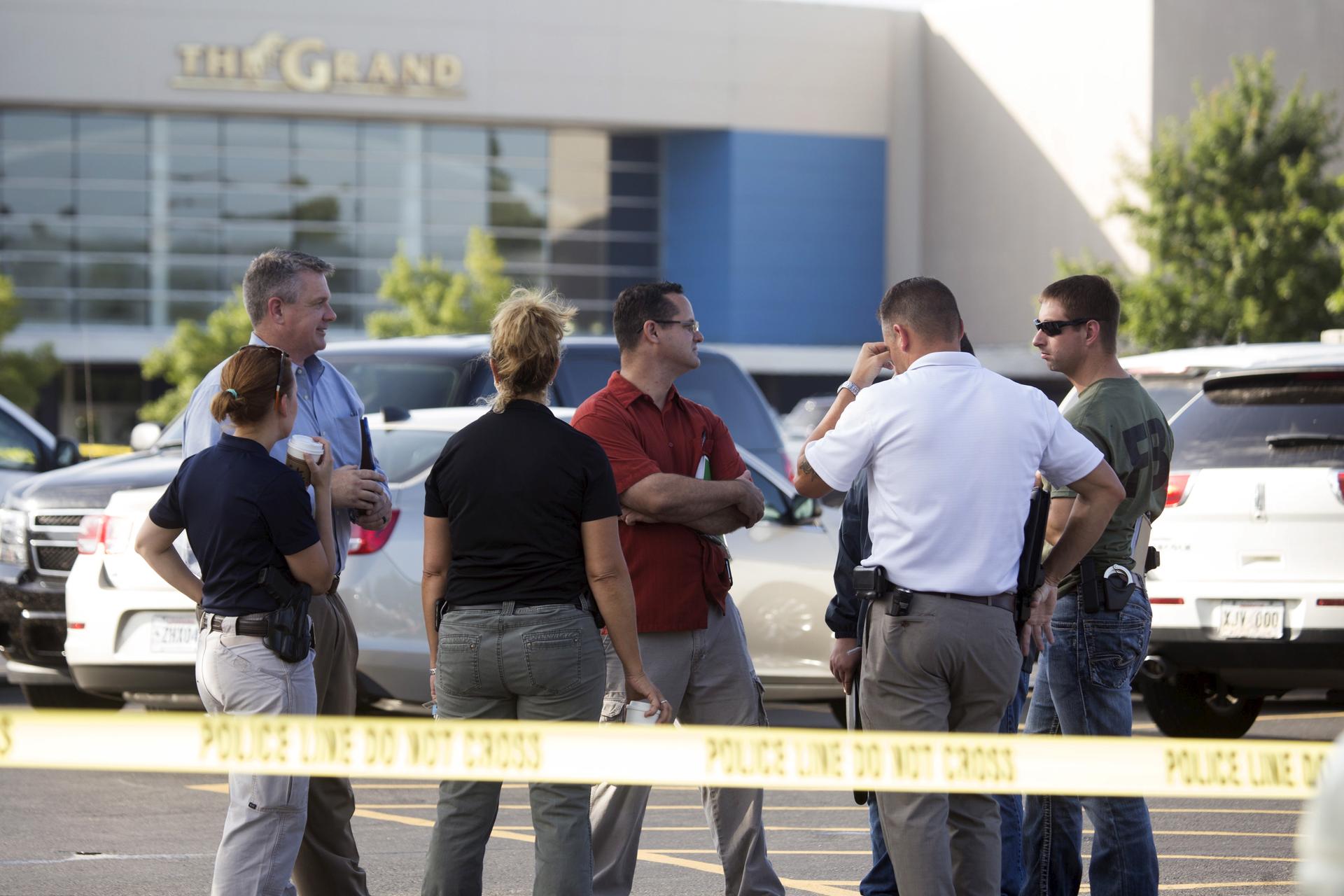Investigators stand outside a movie theatre where a man shot and killed filmgoers in Lafayette, Louisiana. John Russell Houser, an Alabama drifter, opened fire inside the crowded movie theater, killing two women, police said.
Thursday night’s movie theater shooting in Lafayette, Louisiana is just the latest in a long line of mass killings in the US. But there’s one particular element that Lafayette may share with many others: suicide. The gunman, John Russell Houser, took his own life after killing two people and injuring nine others.
“Most or all [mass shootings] have elements of suicide in them,” says Dr. Thomas Joiner, a psychology professor at Florida State University who for years has studied suicide and suicidal behavior.
“These scenarios are basically suicide that morph into something else,” Joiner says.
Joiner says whether or not suicide is at the root of an incident can vary, but even in killings where the murderer doesn’t commit suicide, he says the elements are there but a little harder to discern.
Joiner’s research has found that the decision to commit suicide usually comes before the decision to hurt others. In his book, “The Perversion of Virtue: Understanding Murder-Suicide,” Joiner estimates that at least 2 percent of suicides in the US are preceded by the killing of at least one other person, and that the rate of murder-suicides that involve firearms reach nearly 100 percent in some studies.
“Just to die by suicide is too much a stigma for the person, their family,” Joiner says, “[Killing themselves and others] is their only option.”
It’s that option, according to Joiner, that helps fulfill the “virtue” he writes about and what he says the killers see as the higher purpose of the act that they’re committing.
“They think it serves mercy, justice, duty or glory,” Joiner says. He argues that true murder-suicides involve at least one of the four.
The most infamous example that Joiner cites is 1999’s Columbine High School shooting, where students Eric Harris and Dylan Klebold murdered 12 classmates and one teacher before taking their own lives. Joiner says Harris and Klebold were suicidal in their intent, but killing others amounted to something Joiner says they believed would be “glorious” and leave an impact, rather than only committing suicide. The shooter in Layfayette, John Russell Houser, had had a history of manic depression and bipolar disorder — and his wife once had removed all weapons from their home because of her concerns, CNN reported.
The Centers for Disease Control and Prevention has called suicide an “increasing public health concern.” It is now the 10th leading cause of death for Americans, surpassing the number of deaths from motor vehicle crashes in 2009.
